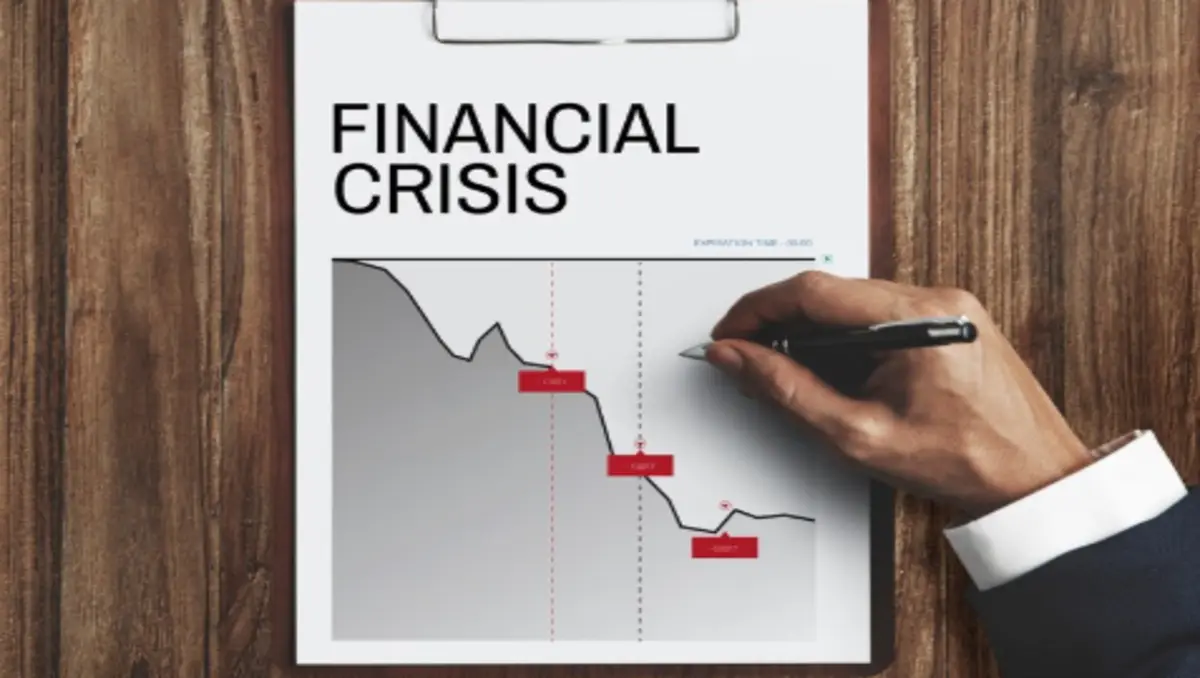if is full of uncertainties, and the economy is no exception. Whether it’s a global recession, a local economic downturn, or an unexpected personal financial crisis, having a robust financial crisis plan can help you weather the storm. Planning ahead ensures that when financial challenges arise, you are prepared to handle them efficiently and with minimal stress.
In this blog post, we will explore what financial crisis planning is, why it is essential, and how you can build a financial crisis plan that will help protect your financial future, regardless of external challenges.
What is Financial Crisis Planning?
Financial crisis planning involves preparing for unexpected financial difficulties. This can include personal events like job loss, medical emergencies, or unexpected repairs, as well as broader economic disruptions such as recessions or market crashes. By taking proactive steps, you can secure your financial stability during such events.
Having a financial crisis plan in place allows you to stay calm and focused in difficult times. It provides clarity about what actions to take to minimize financial loss and regain stability.
Why is Financial Crisis Planning Important?
- Uncertainty in the Economy:
Global economies are often volatile. For example, the COVID-19 pandemic caused widespread job losses and economic downturns. Even if you have a stable job and income, external factors can significantly impact your financial situation. - Job Security:
Even if your job seems secure, layoffs, downsizing, or industry changes can affect your employment status. Financial crisis planning allows you to prepare for a sudden loss of income. - Health Emergencies:
Unexpected medical issues can drain your savings and cause debt. With the rising cost of healthcare, it’s crucial to have a plan that covers medical emergencies without crippling your finances. - Natural Disasters or Unexpected Events:
Whether it’s a house fire, flood, or car accident, these incidents can create significant financial challenges. A well-thought-out financial crisis plan includes provisions for these situations. - Peace of Mind:
Having a financial plan gives you peace of mind, knowing that you can handle challenges when they arise. It reduces anxiety and helps you stay focused on recovery rather than worry.
Key Components of a Financial Crisis Plan
When developing your financial crisis plan, there are several crucial components to consider. Each plays a significant role in ensuring that you can navigate through financial difficulties successfully.
1. Build an Emergency Fund
An emergency fund is one of the most critical aspects of financial crisis planning. It acts as a financial cushion to help you weather tough times without relying on credit or loans.
- How Much Should You Save?
Experts recommend saving three to six months’ worth of living expenses in your emergency fund. This will help cover basic costs if you lose your job or face other financial challenges. - Where to Keep It?
Your emergency fund should be easily accessible. You can store it in a high-yield savings account or money market account, where it will earn interest while remaining liquid.

2. Cut Back on Non-Essential Spending
During a financial crisis, it’s essential to prioritize your spending. Non-essential expenses, such as dining out, entertainment, or subscriptions, should be reduced or eliminated.
- Create a Budget:
A simple budget helps you track your income and expenses, ensuring you focus on what’s most important. Allocate more money toward essentials like food, housing, and utilities, and avoid unnecessary purchases. - Review Subscriptions:
Cancel or pause subscriptions that you don’t use frequently. Whether it’s a gym membership, streaming services, or magazines, cutting back on these expenses will free up more money for essentials.
3. Review Your Debts
If you have outstanding debts, a financial crisis can make it even harder to pay them off. Reviewing your debts and finding ways to reduce or consolidate them can help you manage your finances during a crisis.
- Prioritize High-Interest Debt:
Credit cards and payday loans often come with high-interest rates. Prioritize paying these off first to reduce the amount of interest you’ll be paying in the long run. - Refinance Loans:
If you have student loans, mortgages, or auto loans, check if refinancing is a viable option. Refinancing can lower your monthly payments and interest rates, giving you some breathing room during tough times.
4. Diversify Your Income Streams
Relying on a single income source is risky, especially in the event of a job loss or business downturn. By diversifying your income, you can reduce the impact of financial crises on your finances.
- Side Hustles:
Explore side jobs or freelance opportunities. Whether it’s offering tutoring, freelance writing, or working as a driver, these extra income sources can help fill in the gaps. - Investments:
Investments in stocks, bonds, or real estate can provide an additional income stream over time. However, it’s important to be cautious and invest wisely to avoid losses during market downturns.
5. Review Insurance Coverage
Having the right insurance coverage can make all the difference during a financial crisis. Whether it’s health, life, auto, or home insurance, it’s essential to ensure you’re adequately covered for emergencies.
- Health Insurance:
Ensure you have a good health insurance policy to cover medical expenses during a crisis. Without insurance, healthcare costs can quickly deplete your savings. - Life and Disability Insurance:
Life insurance can provide for your loved ones in the event of your death, while disability insurance can replace lost income if you are unable to work due to illness or injury. - Home and Auto Insurance:
Ensure your home and auto insurance policies are up to date. Natural disasters or accidents can cause significant financial setbacks, and having insurance can help
6. Plan for Long-Term Financial Security
While a financial crisis plan is focused on short-term survival, it’s also important to think long-term. Work toward financial independence and stability by saving for retirement, investing wisely, and continuing to educate yourself about personal finance.
- Retirement Accounts:
Contribute to retirement accounts like 401(k)s or IRAs. Even small, regular contributions will add up over time and help ensure that you’re financially secure in your later years. - Invest in Knowledge:
The more you learn about personal finance, the better equipped you will be to make informed decisions. There are countless resources available, including books, blogs, and online courses.
Steps to Take When a Financial Crisis Strikes
Even with the best financial planning, crises can still catch us off guard. Here’s what to do if you find yourself in the middle of one:
- Stay Calm and Assess the Situation:
Take a moment to breathe and assess the situation. Panicking will only make things worse. Take stock of your finances, including your savings, debts, and income sources. - Cut Back on Expenses Immediately:
Reduce all non-essential spending immediately. Focus on the bare necessities and eliminate discretionary expenses. - Use Your Emergency Fund:
If you have an emergency fund, now is the time to use it. This is the reason you saved it in the first place. Don’t feel guilty for using it—your goal is to get through the crisis. - Reach Out for Help:
If you’re facing a severe crisis, don’t hesitate to reach out for help. Whether it’s financial counseling, unemployment benefits, or family support, there’s no shame in asking for assistance.

Conclusion:
While no one can predict when a financial crisis will hit, being prepared can make all the difference. With a strong financial crisis plan, you can face tough times with confidence, knowing that you have the resources to bounce back.
read more
https://financekhush.com/financial-products-a-complete-guide-in-2025/
Remember, the key to successful financial crisis planning is to start early. The sooner you take action, the better equipped you’ll be to handle whatever comes your way.
Here are top 10 best faq’s
1. What is financial crisis planning?
Financial crisis planning involves preparing for unexpected financial events, such as a recession or market downturn. It focuses on risk management, building emergency funds, and ensuring businesses and individuals can survive through difficult times.
2. Why is financial crisis planning important?
It ensures businesses and individuals are prepared for economic shocks, reducing the impact of financial losses. It helps in managing cash flow, debt, and other critical financial aspects during a crisis.
3. How do I create a financial crisis plan?
Start by assessing your current financial situation, identifying risks, creating emergency funds, reducing unnecessary expenses, and diversifying investments. Having contingency plans for various scenarios is key.
4. What are the first steps in financial crisis planning for a business?
The first steps include assessing financial vulnerabilities, understanding cash flow, establishing an emergency fund, cutting non-essential costs, and developing crisis communication strategies for stakeholders.
5. How can individuals prepare financially for a crisis?
Individuals should focus on building an emergency savings fund, reducing personal debt, avoiding unnecessary expenses, and having a diverse investment portfolio to weather economic downturns.
6. What role does insurance play in financial crisis planning?
Insurance can provide financial security in times of crisis by covering risks like health, property damage, and business interruption. It’s essential to review and update insurance policies to ensure adequate coverage.
7. How can I protect my investments during a financial crisis?
Diversifying your investments across different asset classes, avoiding panic selling, and seeking advice from financial experts can help protect your investments. It’s also wise to consider more stable investments like bonds or real estate.
8. What is the role of government in financial crisis planning?
overnments often step in during a financial crisis by implementing fiscal stimulus programs, offering loans or grants, and stabilizing financial systems. Understanding government support programs can help businesses and individuals navigate a crisis.
9. How can businesses reduce costs during a financial crisis?
Businesses can cut non-essential expenses, renegotiate contracts, reduce staff where necessary, and explore new revenue streams. Operational efficiency and leveraging technology can also help lower costs.https://www.youtube.com/
10. How do I know if my financial crisis plan is effective?
Regularly reviewing and updating your plan, testing it through simulations or stress tests, and tracking your financial goals will help assess the effectiveness of your crisis plan. It should provide a clear roadmap for action in case of an economic downturn.

28 thoughts on “How to Plan for a Financial Crisis: A Simple guide in 2025”